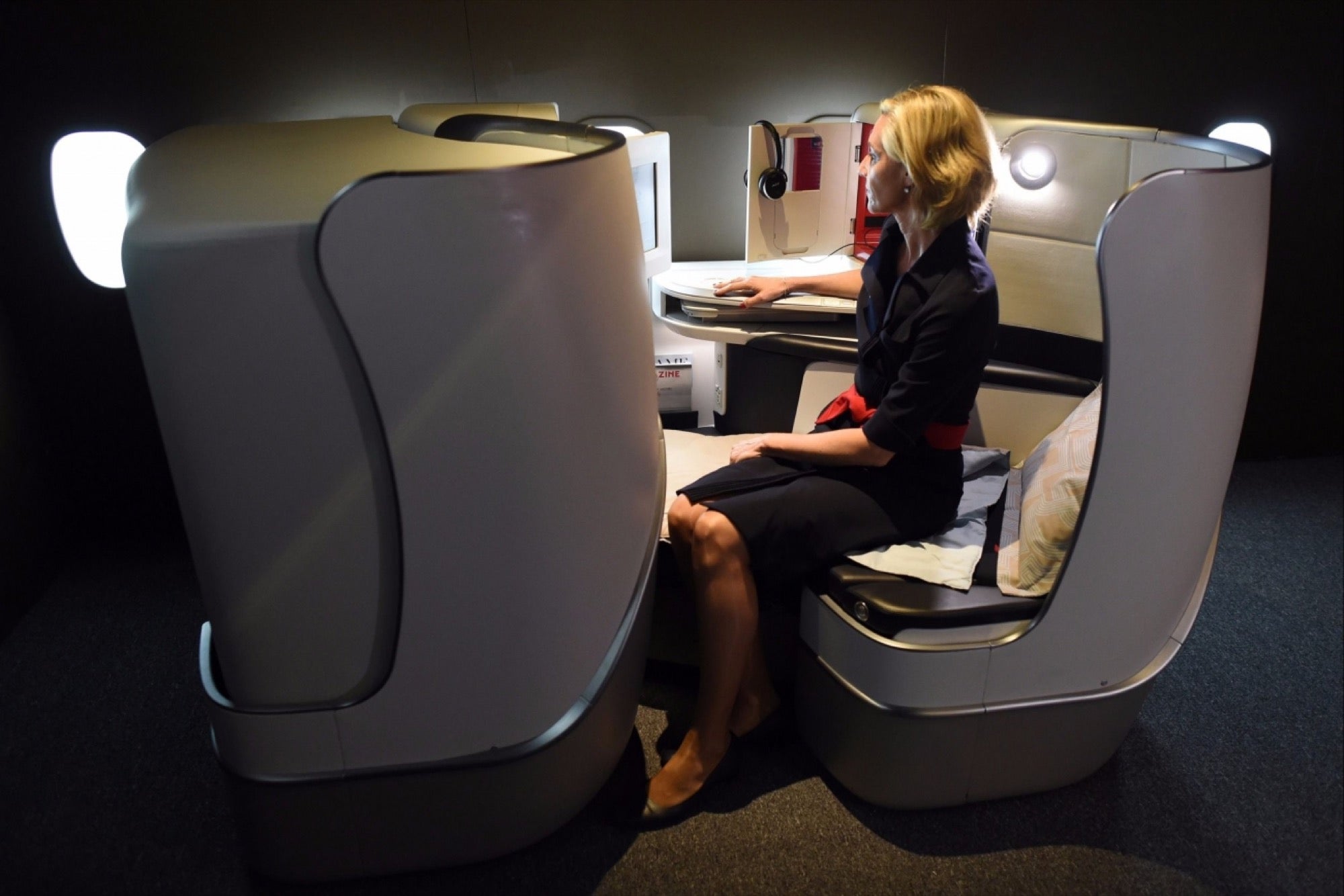Air France Offers Compromise After Flight Attendants' Outrage at Headscarf Rule Those who aren't comfortable wearing a headscarf in Tehran can fly to other locations, the company said.
This story originally appeared on Fortune Magazine

Air France has offered a compromise in its effort to squash the controversy stemming from its rule that female members of its flight crews don headscarves when disembarking in Iran.
The hubbub stems from Air France's decision in December to resume its service to Tehran. It had suspended flights there in 2008 due to international sanctions related to Iran's nuclear program, but it said late last year that it would start flying to the republic again in April with three round-trips from Paris to Tehran every week. That move came after Iran and several Western nations, including France, agreed to a nuclear deal.
Then the airline told members of its flight crews that on those new flights to Tehran, female employees would have to wear a headscarf when the plane landed in Iran to comply with the nation's law that all women cover their hair in public places. "Tolerance and respect for the cultures and customs in the countries served by the airline are part of the fundamental values of Air France and its staff," Air France said in a statement.
Its female crew members didn't see it that way.
Their unions blasted the rule and demanded that the airline make wearing a headscarf voluntary. The National Syndicate of Air Transport Personnel, the French air transport union, said that the requirement was an affront to women's rights. In France, public displays of religious affiliation are frowned upon. In fact, headscarves are prohibited in French state schools and offices, and it's actually illegal to wear the full Muslim veil in public. The head of another flight crew union said that flight attendants were not interested in passing judgement on those who choose to wear headscarves; they are simply denouncing "that it is being made compulsory."
Air France countered that that French law allows for the "restriction of individual liberties" if it's justified by the nature of the task being accomplished. It also noted that it was simply restoring a requirement that had been in place on flights to Iran before the airline suspended its service there.
Those defenses didn't quiet the controversy so the airline proposed a compromise Monday night that catered to union demands.
The airline says that to ensure its "respect for cultures" doesn't clash with "the respect of the personal values of each Air France female crew member," female flight attendants and female pilots will have the chance to opt out of serving flights to Tehran and can work different routes instead. "They will have to inform of their decision to refuse to wear the headscarf in line with a specific procedure beforehand," the company said.











